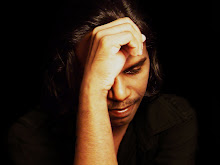About the reality of detachment.
(1) Arjuna said: 'Krishna, You as well praise the renunciation of fruitive labor as the practice of yoga. Please tell me which one is definitely more beneficial of the two.'
(2) The Supreme Lord replied: 'Renouncing [the fruits] and also action in yoga lead both to the path of liberation, but compared to the renunciation of fruitive labor, the action in yoga is the better of the two.
(3) He should always be known as a renouncing one who never likes or dislikes and who is free from the duality, as certainly, o mighty armed one, he is happy who is liberated from being bound that way.
(4) The less intelligent see the analytic and the work of yoga as different, but not so the learned ones. Situated in either one of them one will enjoy the complete of the result of both.
(5) He who places what one achieves by analysis at the same level as what one achieves by work done in yoga and thus sees study and selfless action as one, actually sees it as it is.
(1) Arjuna said: 'Krishna, You as well praise the renunciation of fruitive labor as the practice of yoga. Please tell me which one is definitely more beneficial of the two.'
(2) The Supreme Lord replied: 'Renouncing [the fruits] and also action in yoga lead both to the path of liberation, but compared to the renunciation of fruitive labor, the action in yoga is the better of the two.
(3) He should always be known as a renouncing one who never likes or dislikes and who is free from the duality, as certainly, o mighty armed one, he is happy who is liberated from being bound that way.
(4) The less intelligent see the analytic and the work of yoga as different, but not so the learned ones. Situated in either one of them one will enjoy the complete of the result of both.
(5) He who places what one achieves by analysis at the same level as what one achieves by work done in yoga and thus sees study and selfless action as one, actually sees it as it is.
